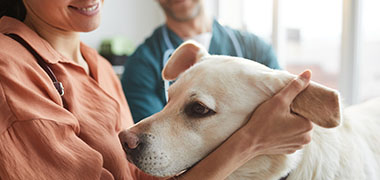
This role has a moderate level of AI exposure. AI can enhance efficiency for some tasks, but this job still relies on human skills and decision-making.
Explore all careersA Wildlife Rehabilitator cares for injured or orphaned wildlife, providing medical treatment and rehabilitation to prepare them for release into their habitats.
Get qualified to work as a Wildlife Rehabilitator with a course recognised across Australia. Speak to a training provider to learn more.



Browse occupations related to Wildlife Rehabilitator



For those looking to embark on a rewarding career and become a Wildlife Rehabilitator, Bundaberg offers an excellent opportunity through the comprehensive Certificate III in Wildlife and Exhibited Animal Care ACM30321. This course is designed for beginners, providing essential knowledge and skills to prepare you for hands-on work with native wildlife. Bundaberg's unique environment, rich in biodiversity, makes it an ideal location for aspiring wildlife professionals to gain practical experience in animal care and rehabilitation.
Upon completing the Wildlife Rehabilitator courses in Bundaberg, learners can explore a variety of related job roles that are integral to the animal care industry. Positions such as a Pet Groomer and Animal Attendant provide opportunities to work closely with animals, ensuring their wellbeing and grooming needs are met. Additionally, roles such as Wildlife Carer and Zoo Keeper allow individuals to directly contribute to the conservation and rehabilitation of wildlife.
In Bundaberg, wildlife conservation is a growing priority, and the courses available are tailored to meet the demand for skilled professionals in the field. The Certificate III in Wildlife and Exhibited Animal Care ACM30321 is not only a starting point but also opens doors to various animal-related careers, including Animal Technician and Zoologist. By acquiring critical skills in wildlife rehabilitation, individuals can make impactful contributions to their communities and the environment.
With 1 well-structured course available in Bundaberg, it is feasible for anyone with a passion for wildlife to begin their journey towards becoming a Wildlife Rehabilitator. Those who complete this course are well-equipped to consider opportunities as a Kennel Hand, Cattery Attendant, or Kennel Attendant, all of which play a vital role in animal care facilities. For more information on how to advance your career in wildlife rehabilitation, visit the Wildlife Rehabilitator courses in Bundaberg page.